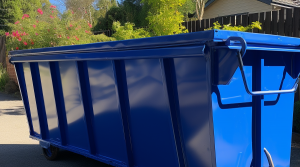Disposing of Household Waste: Skip Bin Essentials
When it comes to managing household waste, skip bins are invaluable tools. Whether you’re undergoing a renovation, decluttering your home, or simply dealing with regular household waste, skip bins offer a convenient and efficient solution. However, to make the most of skip bins and ensure responsible waste disposal, there are certain essentials to keep in mind. Disposing of Household Waste: Skip Bin Essentials
Choosing the Right Skip Bin Size
One of the key factors in efficient waste disposal is selecting the appropriate skip bin size. Opting for a bin that’s too small can result in overflow and additional costs, while a bin that’s too large may be unnecessary and take up valuable space. Assess the amount and type of waste you’ll be disposing of to determine the ideal size for your needs.

Disposing of Household Waste: Skip Bin Essentials
Segregating Waste
Proper waste segregation is essential for effective recycling and disposal. Before tossing items into the skip bin, separate recyclables such as paper, plastic, glass, and metal from general waste. This not only reduces landfill waste but also facilitates recycling processes, contributing to environmental sustainability.
Understanding Prohibited Items
While skip bins accommodate a wide range of household waste, there are certain items that are prohibited for disposal. Hazardous materials such as chemicals, batteries, asbestos, and electronic waste must be handled separately and disposed of responsibly to prevent environmental harm. Familiarize yourself with local regulations and guidelines regarding prohibited items to avoid potential fines or penalties.
Maximizing Bin Space
To optimize skip bin space and minimize air gaps, consider breaking down large items and compressing waste where possible. Flatten cardboard boxes, dismantle furniture, and compact bulky items to create additional room within the bin. By maximizing bin space, you can minimize the number of trips required for waste disposal and reduce overall costs.
Scheduling Collection
Coordinate skip bin collection in advance to ensure timely removal of waste. Factor in the duration of your project or cleanup efforts and arrange for collection once the bin reaches capacity or upon completion of the task. Prompt collection not only prevents overflow but also allows for efficient reuse of the skip bin for future projects.
Maintaining Safety
When loading waste into the skip bin, prioritize safety to prevent accidents and injuries. Avoid overloading the bin beyond its capacity, as this can make it unstable and difficult to transport. Additionally, be cautious when disposing of heavy or sharp objects, and use appropriate lifting techniques to prevent strain or injury.
Final Thoughts
By adhering to these skip bin essentials, you can streamline the process of household waste disposal while minimizing environmental impact. From choosing the right bin size to segregating waste and scheduling collection, each step plays a crucial role in efficient and responsible waste management. Embrace these practices to make your household cleanup efforts more effective and sustainable.
